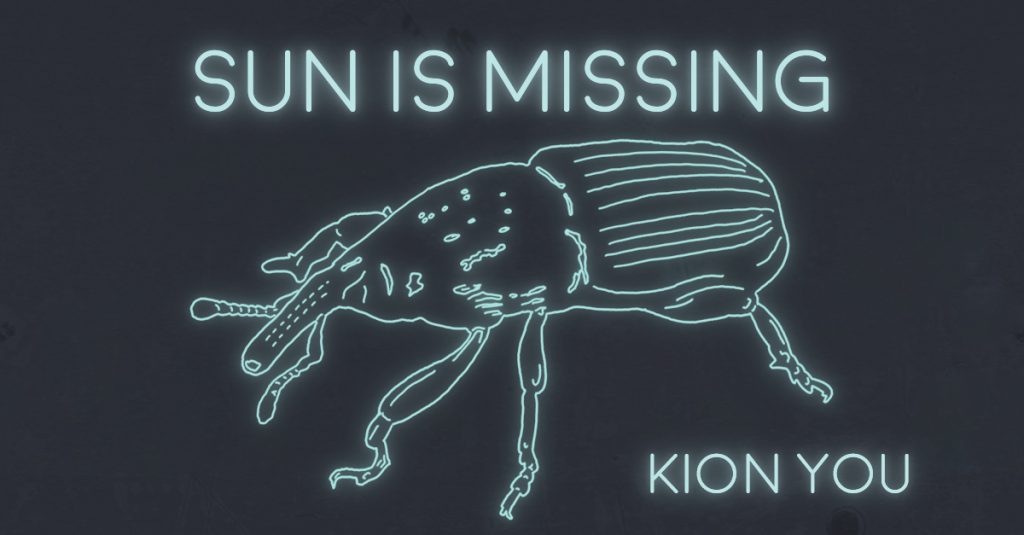The Korean rice weevil is a felicitous insect, bent on one simple task: scaling my bedroom walls. Tonight I see three but sometimes there are as many as ten. The thrill must be similar to that of free solo climbing, but when the weevil falls it gets back up and tries again—the hard-shelled advantage.
After dinner I lie in bed, which is a mat on the ground. One weevil wordlessly falls onto my blanket. It lands on its back and its legs flail like a pit of eels. After gathering itself, the weevil plants its left anterior leg onto the blanket and uses it as a fulcrum, spinning its body counterclockwise in an attempt to pop itself back up. After exhaustive study (entire days in bed) I have concluded that this exercise is successful fifty percent of the time.
I sweep my room and round up a decadent gray pile of cuticle flakes, pubic hairs, dried boogers, and chip crumbs. I scrape bug corpses from cobwebs in corners: weevils, flies, moths, spiders, mosquitos, and one black fuzzy caterpillar. While sifting detritus onto paper towels, another weevil falls, one that has climbed only to the point where the linoleum flooring meets the wallpaper (approximately one inch off the ground). I flip this one back onto its feet, anticipating a stronger performance in its next go-round.
A nightly ritual: spraying mosquito repellent onto every shelf, behind every drawer, even out the window. I lay in wait for a lone mosquito to venture out into the open, hacking its last, but nothing happens. Both weevils are still spinning on their backs. As I insert my earplugs and turn off the light I know the mosquitos will soon be buzzing around my head, talking in tinnitus.
+
I take out my earplugs to make sure the screeching is real, and my phone says it is 3:30AM. There are three courses of action: try to go back to sleep and hide my limbs under my blanket, reach for the insect spray by my bed and spray blindly around my face, or get up, turn on the light, and clap the motherfuckers to death. After turning on the light I see three of them on the wall just above my head and I smack all of them, one-two-three, letting their blood— my blood—smear the wall. I’m too sleepy to clean up, and when I turn off the light, the darkness pulsates with haloes for a second.
The path back to sleep will be impossible because I am now aware of the background noise my body has worked so hard to block out. I wear earplugs because my grandmother is dying in the next room and I do not want to hear it. Every night she sings, all throaty and guttural, two syllables which flutter up and down. 아퍼, 아퍼, 아퍼, it hurts, it hurts, it hurts. Right now she is singing a variation on the theme: 너무 아퍼, it hurts so much, 죽고 싶어, I want to die. In dire combination: 아퍼, 아퍼, 너무 아퍼, 죽고 싶어.
If Google Translate is correct, my grandmother’s esophageal tube has enlarged to the point where acid refluxes up her body whenever she lies down. She has a few devices lodged there to little effect. She also has a hip problem from falling off her roof twenty years ago. Her husband drank himself to death and her sons abandoned her for America. This once amazed me, the accumulation of suffering packed into one body, which is why I decided to move back to Korea and live with her. Now, however, she is just my grandmother.
My grandmother’s stream of piss sounds healthy, and I hear her leave the house to wander the neighborhood. She never closes her bedroom or bathroom doors but always slams the front door. This week I have woken up to her chopping vegetables, barging into my room to pick out my dirty laundry, and watching TV with the volume maxed out. With their death knells, she and the mosquitos are formidable.
But I’m not sure if she’s actually dying. During my first month, I didn’t sleep because I was terrified that at any moment she might keel over and breathe her last, but I’ve come to realize that a dying person doesn’t have this much fight in them.
My aunt says that me coming to Korea has been a “present” for my grandmother, but my Korean is so bad that while she regales me at mealtimes I just nod and clear off my bowl of rice. In the vocabulary of pain, however, she speaks simply and succinctly—I feel like I’m being ripped in half. Have you ever rubbed pepper flakes into a wound?
I’m wide awake and heave a sigh. Per usual, I open Instagram and let the blue light ruin me. It is afternoon in New York and pictures are being posted. In the yard, I hear my grandmother cursing a family of feral cats. The cats took up residence a few weeks ago—a mother and three orange newborns—but my grandmother waged war after they began pooping in our yard. She has thrown unopened cans of beer. She curses them as she would her children. I hear each thump of her cane, the cats’ claws gristling the asphalt.
At dawn, my grandmother falls into an intense fit of snoring. The pearling sky makes visible three mosquitos pinned against my wall. They are half-flattened and half-protruding, perfect for a glass case or a crucifixion scene. Look on my works, ye mighty, and despair.

